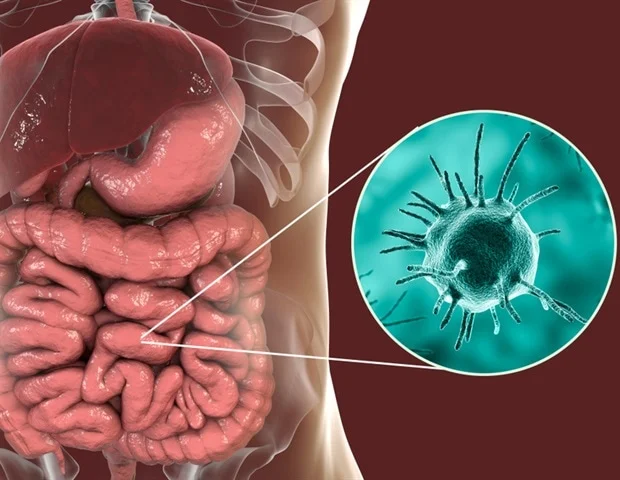There is a possibility that upper back pain in pregnancy can occur at any time during pregnancy, but it is more common during the third trimester. Several factors contribute to this. First, as pregnancy progresses, the growing uterus and baby shift the center of gravity forward, placing additional strain on the back muscles.
Additionally, a woman may gain between 25-30% of her body weight within a relatively short period of time, placing additional stress on her back muscles. Pregnancy can also be affected by hormonal changes. During pregnancy, hormones loosen ligaments and muscles, which leads to a loss of inherent spinal and pelvic stability.
Muscle spasms can result as a result of the muscles working harder. Furthermore, pregnant women may experience changes in posture, as well as increased strain on their necks, shoulders, and thoracic spines due to the expansion of breast tissue.
Pregnancy-Related Upper Back Pain
Birth changes your body, which is why you may experience upper back pain pregnancy. The following are some common reasons for discomfort such as this:
Breast Growth
In addition to placing increased pressure on the thoracic spine and neck, breast tissue enlargement can also cause upper back pain by altering posture.
Hormonal Changes
Relaxin is a hormone secreted during pregnancy that relaxes pelvic joints and ligaments in preparation for childbirth. As a result, your back becomes strained, resulting in back pain.
An Estimate of the Uterus’ Size
In addition to putting a lot of pressure on your spine, the growing uterus also places a lot of pressure on the rest of your body. During the third trimester, this is particularly evident when lying on your back.
The Change In Balance And Center Of Gravity
For prolonged periods of time, you must stretch your neck muscles and pull your shoulders to maintain your balance as your uterus expands throughout pregnancy. You may experience upper back pain as your body shifts its center of gravity toward the front as your pregnancy progresses. Consequently, your back muscles are unaccustomed to this shift, leading to upper body pain.
Having The Wrong Posture
When a woman is pregnant, she will gain approximately 10 to 15 kilograms. In addition to straining the back, this weight also affects the spine. If you suffer from upper back pain, it will become difficult to stand upright for an extended period of time.Wearing high heels during this period will exacerbate the problem.
Avoiding And Easing Back Pain in Pregnancy
Here are some tips you may find useful:
- Lift or pick something up from the ground by bending your knees and maintaining a straight back.
- Do not lift heavy objects.
- Whenever you turn, move your feet to prevent your spine from being twisted.
- Wear flat shoes in order to ensure even distribution of your weight.
- Consider balancing the weight of two bags when shopping
- Use maternity support pillows to keep your back straight and supported when you are sitting
- In the later stages of pregnancy, it is especially important to rest adequately
- Take a warm bath or receive a massage
- You should use a mattress that supports you properly – you can firm a soft mattress by placing a piece of hardboard under it go to a group or individual back care class
- As long as you follow the instructions on the package, you should be able to take paracetamol to ease backache while pregnant, unless your doctor or midwife advises you otherwise.
- You should consider the best recliners for back pain if you are suffering from back pain during pregnancy.
Best Stretches for Upper Back Pain
In order to reduce stress due to altered posture during pregnancy, try these movements at home to relieve upper back pain:
Doorway Pectoral Stretches
Put your arms at shoulder height on a door frame and bend your elbows to 90 degrees while standing in the door frame. You should perform a gentle lunge movement with one foot forward until you feel a moderate stretch across your chest and shoulders. The movement should be held for 30 seconds and repeated three to five times per day.
Scapular Retraction
The following stretch should be performed following the pectoralis stretch described above. Let your arms drop to your sides, imagine that you are holding a pencil between your shoulder blades, and pinch them together gently for 5 seconds. Repeat 20 to 30 times daily by holding for five seconds and relaxing.
Choosing The Right Time To Consult Your Physician
Pregnancy can cause upper back pain, but you should be aware of when something is wrong. Contact your pain doctor in Dallas if you experience the following symptoms:
- Your symptoms suggest that you are going into labor
- There may be leaking fluid and bleeding in your vaginal area causing your back pain
- The burning sensation that you experience when you urinate and the frequency with which you urinate could be indications of a urinary tract infection.
- Even after trying a number of remedies for two weeks, your back pain continues to persist
- The feeling of tingling and loss of sensation in your extremities may indicate a problem with the spinal nerves.
Conclusion
During pregnancy, upper back pain is common, but it is not something to ignore. If these methods do not relieve your upper back pain, contact your physician. Occasionally, back pain may be a sign of preterm labor or other obstetrical conditions, so please inform your doctor of the problem so that he or she may evaluate it and suggest appropriate treatment.
The treatment of upper back pain during pregnancy can be successful. This will improve the quality of your pregnancy, as well as make recovery and transition into the third trimester easier.















Leave a comment